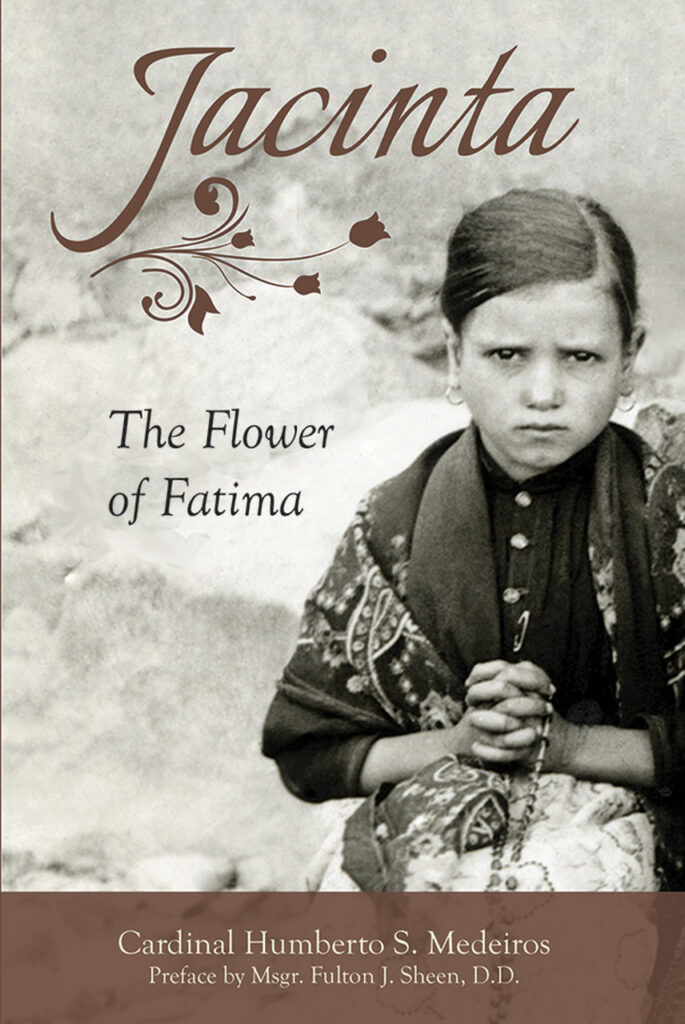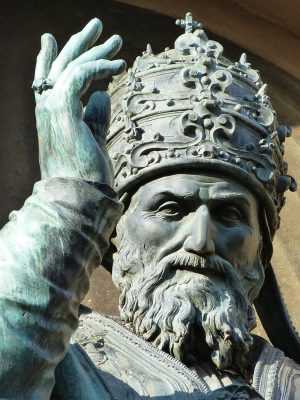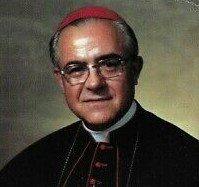The Portuguese have always shown special loyalty to the Holy Father. It was the Pope who emancipated them from vassalage to Castile – and it was to him that the new, little country of Portugal was entrusted at its birth. Though in the course of the centuries this traditional devotion was occasionally weakened, the fault was not the people’s. It was the government alone that failed in its duty and fidelity.
Devotion to Christ’s Vicar is so deeply rooted in the hearts of the people that no more than a recommendation by two priests was necessary to impress on three little children the importance of this devotion. Jacinta grew to love the Pope intensely. Sister Maria Lucia de Jesus writes:
“Two priests who came to question us, recommended that we pray for the Holy Father. Jacinta asked who he was; the priests told her and explained his great need of prayers. Jacinta became so devoted to the Holy Father that whenever she offered her sacrifices to Jesus she added the words ‘and for the Holy Father.’ At the end of the rosary she always said three Hail Marys for the Pope’s intentions. At times she would say, ‘I wish I could see the Holy Father! So many people came here but the Holy Father never does…’ Naively she supposed that the Holy Father could travel as easily as anyone else.”
“Therefore we offered no prayer or sacrifice to God without praying for the Pope. We conceived such an ardent love for the Holy Father that when the pastor told my mother one day that I might have to go to Rome for questioning by the Pope, I clapped my hands with joy. I said to my cousins, ‘Won’t it be wonderful to see the Holy Father?'”
“But my cousins wept and said, ‘We are not able to go – but we can offer this sacrifice for him.’ She never again forgot the Pope.”
Jacinta kept him always in her prayers and in her sacrifices as is evident from the whole course of her life. Her cousin related the following:
“Jacinta would tell me at times: ‘I feel a very severe pain in my breast but I do not tell mother about it; I want to suffer for the love of Our Lord and in reparation for the sins committed against the Immaculate Heart of Mary, and for the Holy Father and for the conversion of sinners.'”
In health and in illness, at home, in jail, in the hospital, in play and in suffering, Jacinta always remembered the Holy Father. She prayed and made sacrifices for him. She seemed to have a full grasp of the words: ‘Ubi Petrus, ibi Ecclesia’ (Where Peter is, i.e., the Pope, there is the Church). Jacinta gave herself without reserve to the Church, represented by the person of the Pope.
Sister Lucia of Jesus says:
“One day we spent our siesta near the well owned by my parents. Jacinta sat down on the flagstones of the well while Francisco went along with me to find wild honey among the briers of a nearby steep. A short while later Jacinta called out, ‘Did you see the Holy Father?’ ‘No.’ I don’t know how it happened, but I saw the Holy Father in a very big house, kneeling by a table, with his hands on his face, and he was weeping. Outside the house there were many people. Some of them were throwing stones at him, others were cursing him and saying many ugly words. Poor Holy Father, we must pray very much for him.'”
“At another time we went to the cavern on the top of the hill. When we got there, we prostrated on the ground and said the prayers of the Angel. Shortly afterward Jacinta got up and said to me, ‘Don’t you see very many highways and roads and fields full of people weeping and starving for want of food? And the Holy Father in a church praying before the Immaculate Heart of Mary? And many people praying with him?’ Several days later she asked me, ‘Can I tell all those people that I saw the Holy Father?’ ‘No. Can’t you see that it’s part of the secret? You would give it away if you told them that.’ ‘Then I won’t say anything.'”
One day Lucia went over to see Jacinta and found her very pensive, sitting on her bed. She asked her what she was thinking about.
“Of the war that is to come. So many people are going to die and most of them are going to hell. Many homes will be destroyed, and many priests will be killed. Look, I am going to heaven. When you see that light at night which the Lady said would come before the war, run up there, too.’ ‘Don’t you know that no one can run to heaven?’ ‘That’s true, you cannot; but don’t be afraid. In heaven I shall pray hard for you, for the Holy Father, for Portugal, so that the war may not come here, and for all priests.'”
In a letter to the Bishop of Leiria concerning the life of Jacinta, Sister Maria Lucia de Jesus wrote:
“Jacinta was deeply touched by certain things revealed to her in the secret. Because of her great love for the Pope and for sinners she often said, ‘Poor Holy Father! I am so sorry for sinners.'”
In interpreting the sentiments of Jacinta, Sister Maria Lucia pleads fervently:
“May her appeal for prayers for the Holy Father and for priests be heard and put into practice everywhere on earth.”
Obeying the call of the little seer, the pilgrims who flock to Cova da Ira, in Fatima and throughout Portugal, send forth, today more fervently than ever before, a continuous supplication to heaven: Our Lady of Fatima, bless the Pope!
This article is taken from a chapter in Jacinta The Flower of Fatima by Humberto Medeiros which is available from TAN Books.









